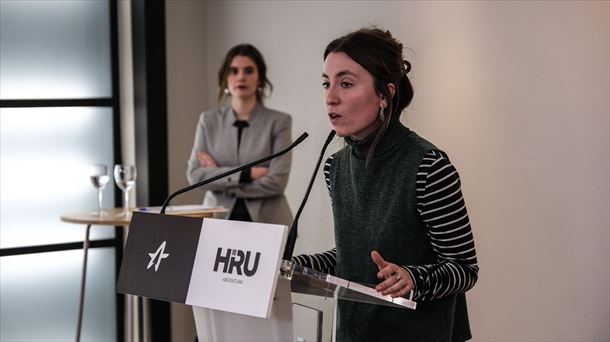In June, the government must reform the use of data in the media. This concerns, among other things, the political dispute over the ban on quotations.
Discussions about the ban on quoting from files on ongoing proceedings. A hot topic. Large coalition members also have their fingers burned and fuses blown. It’s about a lot. Chats and their publication from investigative files have had a lasting impact on domestic politics in recent years. There are layoffs, new governments, there are committees and investigations, processes. Particularly affected: the ÖVP chancellor’s party.
Protection of privacy
The Constitutional Court (VfGH) brought extra dynamics to the political game. The highest judges demand changes in the field of editorial confidentiality for the media. Data processing for journalistic purposes should therefore in principle not be excluded from data protection regulations. This can have far-reaching consequences. For example, when it comes to protecting sources and informants. The legislator must provide new regulations by June 2024. This not only causes unrest within the coalition.
Alongside numerous media representatives and lawyers, the Greens fear that the media could be hampered in their important function of exposing grievances. However, the ÖVP longs for the German model, where research files cannot be quoted verbatim. But only published in an interpretively derivative way. This increases the protection of privacy and prevents – as in Austria – accused people from finding out about their chats through the media and from being in the media’s pillory for years.
It is a balance between turquoise and green. The ÖVP is only prepared to reform media privileges if the Greens agree to the quotation ban, we hear from the small coalition partner. The latter is a clear demand that has been formulated for some time by ÖVP constitutional minister Karoline Edtstadler. Here she has important supporters, mainly from lawyer and legal circles, but also opponents. After the reform, the Public Prosecution Service would have to check every article for criminal law problems, it is said. That would be a huge effort. And a cut in press freedom.
Questionable German model
Permanent legal disputes may arise, which could prevent the media from conducting this investigation. “If I’m always under the threat of punishment, I’ll think twice about how to proceed,” says a senior lawyer.
And the German model? The Minister of Green Justice has always positioned himself clearly against this, and therefore also against the ÖVP. Argument: In Germany this is a dead law. More symbolism than reality. Paraphrasing facts instead of quoting them is problematic. Justice spokesperson Agnes Prammer responded to the current problem: “We consider restrictions on press freedom or even muzzling journalists to be a completely wrong approach – and extremely dangerous.”
The new President of the Supreme Court (OGH), Georg Kodek, also said rather smugly in ORF’s “ZiB 2” that he did not escape any citation ban.
But what do the lawyers say about this? Armenak Utudjian, President of the Austrian Bar Association, about the “Krone”: “We are still very skeptical about a general quotation ban, as this could lead not only to restrictions on the activities of journalists, but also to the curtailment of the suspect’s rights. However, very personal rights (especially privacy) must be protected more strongly than before.” Even if data protection is important, a weakening of the “media privilege” should not lead to restrictions or even erosion of media freedom.
Changes in media legislation
However, Utudijan is a strong supporter of a reform of the Code of Criminal Procedure when it comes to assessing mobile phones and protecting privacy. An aspect that ultimately also has to do with the citation problem.
Norbert Wess is one of the most renowned criminal lawyers in the country. On the one hand, he warns against media bias through reporting on ongoing, particularly noisy proceedings, but at the same time he also emphasizes the importance of the ‘fourth estate in the state’ to control the powerful. He advocates a change in media law, in which the problem can also be correctly localized thematically. Consideration should be given to tightening the rules when it comes to the violation of personal and sensitive content and data. A central point in the debate about published chats in recent years. What is private and what is “abstract” relevant? What will be published?
One thing is certain: according to several stakeholders, the Ministry of Justice’s first draft could – to put it politely – be expanded or revised. Time is running out. In order to reach parliament on time, a concrete design must be available by mid-April. That sounds sporty, given the recent history of blocking. It takes a lot of effort to get to a turquoise-green branch.
Source: Krone
I am Ida Scott, a journalist and content author with a passion for uncovering the truth. I have been writing professionally for Today Times Live since 2020 and specialize in political news. My career began when I was just 17; I had already developed a knack for research and an eye for detail which made me stand out from my peers.



